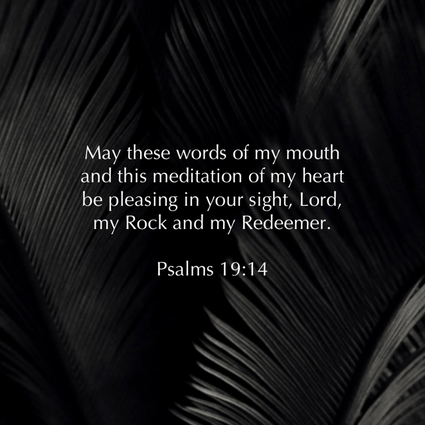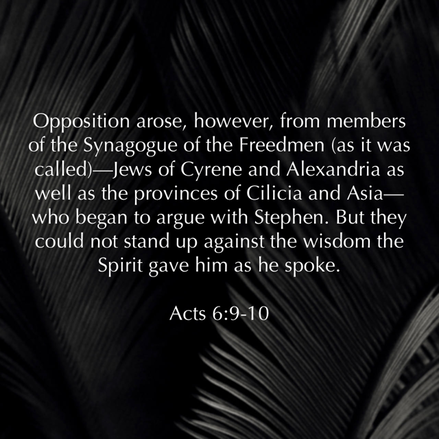|
Good morning! We're so glad you're joining us today! When we meet together in person, we share our joys and concerns before we focus on our Sunday school lesson. Think about your needs and concerns right now, and if you like, you can share them in the comments. Our Sunday school and church is now open so that we can join to worship God, to learn about God’s word and to encourage each other in person. We are grateful to be back together, but we offer these lessons online for those who do not feel comfortable participating in person. We are glad that those who cannot be with us physically are able to learn and worship with us as well. Today’s lesson is on two passages from Deuteronomy — 16:18-20 and 17:8-13. It is the stipulation that the rules regarding how justice is administered themselves be just and free from favoritism, especially when it comes to the weak, the foreigner and the poor. The following anonymous prayer is posted on the website for the Jesuit Xavier University. Grant us, Lord God, a vision of your world as your love would have it: a world where the weak are protected, and none go hungry or poor; a world where the riches of creation are shared, and everyone can enjoy them; a world where different races and cultures live in harmony and mutual respect; a world where peace is built with justice, and justice is guided by love. Give us the inspiration and courage to build it, through Jesus Christ our Lord. This week's lesson is on Deuteronomy 16:18-20; 17:8-13. Introduction We don’t know exactly how judges were chosen in Old Testament times. It appears that the process might have changed from time to time. We only know that judges were important from the beginning of Israel’s history. The process of becoming a judge today is rigorous and demanding. Not only does it require years of study and practice, but it also requires approval from colleagues and often voters before a person is qualified to sit on the bench. Even though judges today are to be above the fray of political battles, we increasingly see political maneuvers to appoint judges and justices that fit a particular mindset or advocate a certain judicial philosophy. Judges then and now have an important role in society, and therefore it is important that they always apply the law impartially and consistently. For ancient Israel, there were four criteria to be a judge that might assist Moses in deciding disputes among the people. They should be capable. The should fear God. They should be trustworthy. And they should hate dishonest gain. Moses received these criteria from his father-in-law Jethro shortly after leading the Israelites out of Egypt but before reaching Mount Sinai. The focus of the book of Exodus is on the first generation of the new nation of Israel. But 40 years have passed by the time the book of Deuteronomy opens, and a new generation of Israelites need to hear the law. This includes the characteristics of a good legal system and the requirements for judges. General Goals: Deuteronomy 16:18-20 Responsible People (verse 18) Moses prescribed two groups of leaders for the community. The judges were those leaders charged with exacting decisions of justice for the people. They were considered leaders and therefore were often mentioned alongside the priests. Officials served the people in a different way. They assisted the judges in leadership and just decision making for the people as they presented themselves before God. The term translated in our text as “fairly” may also mean “righteously”. Fair and righteous action was not a hypothetical idea to be wished for but tangible acts of following the just laws that God had given. Legal proceedings often took place at the gates of every town. In essence, the gates were a public forum in which accountability to God’s law was acknowledged by everyone. When a dispute proved too difficult for the parties themselves to resolve, they came before the priests and the judge, who were to provide fair and just rulings. When we experience difficult conflicts with others, what do we do? Do we take matters into our own hands? Or do we go to wise and loving Christians for insight and resolution? Reliable Principles (19-20) We all understand what it means to “pervert justice”. It is to twist or distort the truth or to issue judgments that do not fit the severity of the offense. Perverting justice was quite a concern for the needy in the land, especially the stranger, the fatherless and the widow. Does it ever seem that wealthy individuals and companies do not receive the same level of “justice” as the poor, the powerless and the foreigner even today? Administrators of justice were not to show partiality based on the person’s social standing. Scripture declares that all people are equal before God and, therefore, God does not show partiality or favoristism. Therefore, the people of God are to demonstrate a life committed to showing impartial justice. Administrators of justice are also not to accept gifts or bribes or else it could cloud their judgment. Bribes and influencing gifts distort a leader’s ability to judge rightly in the manner God requires. Verse 20 reiterates that judges are to “follow justice and justice alone.” Repetition in the Hebrew language was a way of magnifying its importance. Complete and absolute justice with no compromise must be the passion for all of God’s people. The passage links God’s will to allow the people of Israel to continue living in the land with the people’s ability to live in the justice that God required. Living in the land was a matter of making God’s priorities their priorities. Question: Do you ever disagree with the decisions made by the leaders of your congregation? If so, how to you show respect for them when there is a disagreement of consequence? Specific Challenges: Deuteronomy 17:8-13 Difficult Instances (verses 8-11) Moses makes a provision for especially difficult cases, particularly those involving bloodshed, lawsuits or assaults. When a judge cannot decide such a case, the parties would meet at place chosen by God. This appeal to a higher court involved the priests from the tribe of Levi and the judge who is in office at the time. Having priests make judicial decisions may seem unusual to us, but Israel was a theocracy, which meant there was no distinction between the secular and sacred realms under that system. In these cases, Moses warns the parties to carry out whatever verdict or decision the court deems just. In other words, this decision is final and there is no appeal. Defiant Individuals (verses 12-13) So serious was Moses’ warning that those who defied the priestly counsel’s rulings were to be put to death. Such blatant disregard for the sacred rulings was seen as contempt for God and God’s law, and therefore it was a cancer that had to be removed from the community. In other places, the law prescribed capital punishment. The primary concern in all these instances was a concern that the people of God maintain holiness in their covenant relationship. To ignore these deviations was to allow evil to to pollute the community. The extreme punishment would not only eliminate the person who brought evil into the community. It would also serve as a warning to others who might contemplate such behavior. Conclusion The 14-year period from 1980 to 1994 was bittersweet for the American judicial system as Operation Greylord began and ended. Greylord was the name of an undercover FBI investigation into alleged corruption in the judicial system in Cook County, Illinois. The “bitter” part was that the allegations proved to be true. In the end, 15 judges were convicted on various counts of bribery, mail fraud, racketeering, income tax violations and so on. The depth of the systemic corruption was underlined as dozens of others — including lawyers, deputy sheriffs, policemen and court officials — were also convicted. The “sweet” part was that an accountability system existed to expose and correct each corruption. Despite that, we will never know how far and to whom the ripple effects of the corruption extended. Work toward a just system begins by acknowledging the need for four distinct kinds of justice: (1) distributive justice to ensure economic fairness, (2) restorative justice to require restitution by the offender, (3) retributive justice to punish offenders who deserve it, and (4) procedural justice to ensure fairness in the application of the rules. The fourth is the starting point and the one on which all the others depend. Our efforts here form part of the salt and light that Jesus commanded us to be. We do so as citizens of the kingdom that is “not of this world.” Whereas previous lessons on justice have examined justice alongside various qualities such as kindness and righteousness, today’s lesson considers justice alongside some of those officials who were supposed to administer it in Old Testament Israel, namely, judges and priests. Prayer God of justice, our world often voices its desire for justice, yet how we need to return to your Word for a true understanding of this principle! Show us your justice in the world. In Jesus’ name we pray. Amen. Benediction Our benediction this week comes from the New Revised Standard Version. Next week's lesson will be on Deuteronomy 24:10-21.
0 Comments
Leave a Reply. |
AuthorWe are a small, rural Presbyterian church in southwestern Pennsylvania. Archives
July 2024
Categories
All
|



 RSS Feed
RSS Feed